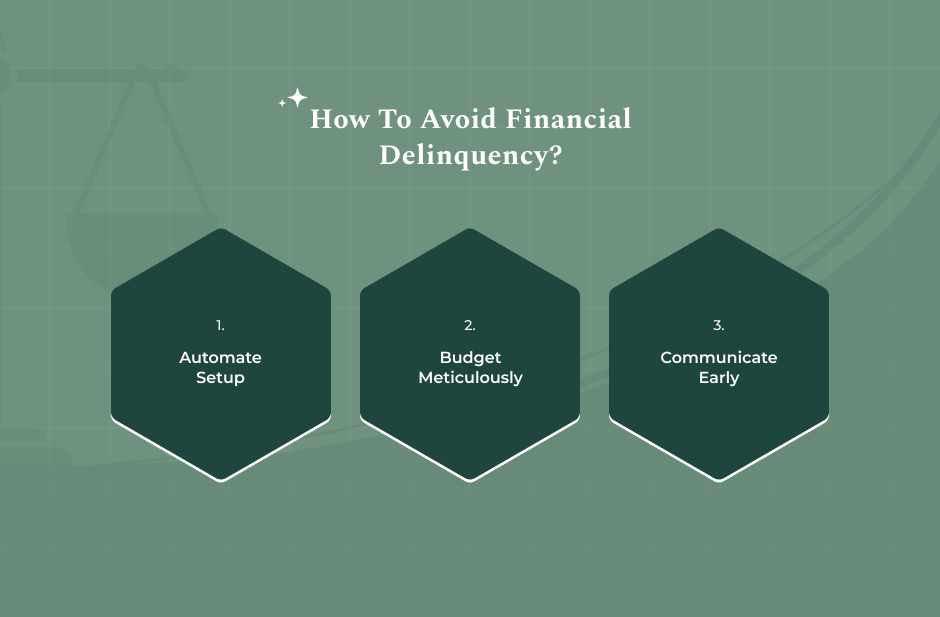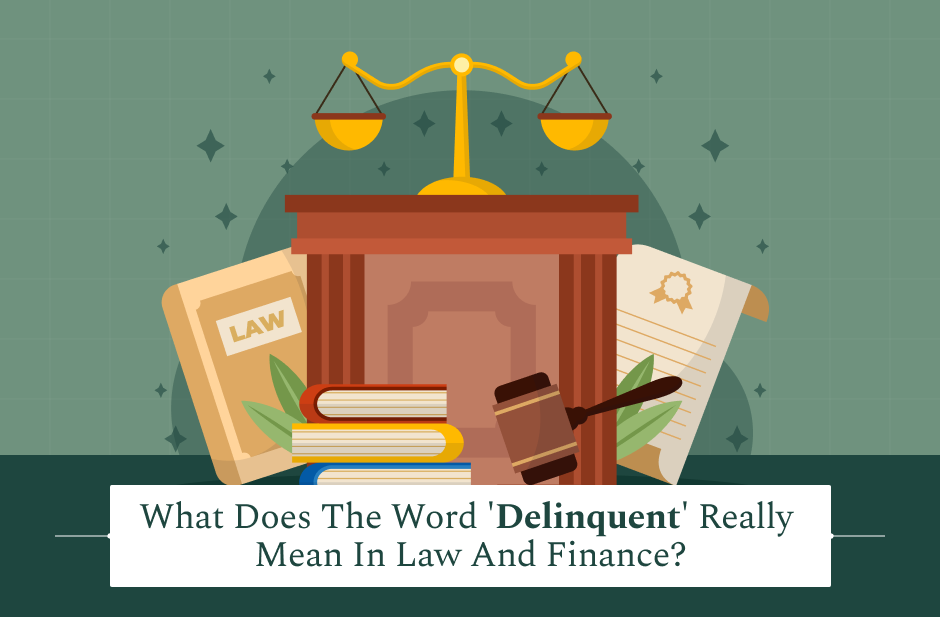When we think of “delinquent meaning,” what we really think of is finance. This single word, however, carries vastly different implications in law, finance, and behavior. It is important to understand the meaning of delinquent correctly in order to avoid serious confusion. It helps you to understand the full consequences of an action.
For example, the meaning changes completely depending on the context. In this comprehensive guide, the true meaning of delinquent is broken down.
Merriam-Webster defines “delinquent” as someone or something “offending by neglect or violation of duty” or “being overdue in payment” (Merriam-Webster). The meaning of the word has developed throughout history.
The word originally came from the Latin delinquere, meaning “to fail” or “to transgress.”
Nowadays, we apply it mainly in two influential contexts: first of all, to one’s failure to pay his debt, and secondly, to unlawful behavior by a juvenile.
The key difference depends on the context. We will explain below all aspects of the meaning of the word delinquent.
The Core Definition(s) Of Delinquent Meaning

The etymology of the word delinquent meaning always involves a failure to meet an obligation-whether that duty is contractual, financial, or behavioral, the word signals a transgression.
Delinquent As Adjective And Noun
We can use “delinquent” as an adjective. This describes the state of being overdue, such as a “delinquent payment.” We also use it as a noun. This identifies a person who is delinquent, most commonly a “juvenile delinquent.”
The fundamental senses are clear. One relates to financial failure. The other relates to a failure in social or legal duty. These distinctions are key in understanding delinquent meaning.
Etymology And Change In Use
The original use of the term applied generally to anyone who had failed in a duty. By the 19th century, its use sharpened, becoming strongly tied to minor criminal behavior, especially from children.
Later, financial delinquency-summing debt became dominant in modern conversation. There is a common thread to the uses: failing an expected responsibility.
Behavioral And Legal Delinquent Meaning
The legal use of the word delinquent meaning primarily applies to young people. This use focuses on conduct.
Delinquent Meaning: What Is A Juvenile Delinquent?
The legal term juvenile delinquent refers to any person under the age of majority who has committed an act that, if committed by an adult, would be a crime. Depending on the state, the age threshold can be either 15, 16, 17, or 18 years.
Sometimes, the court system further classifies juveniles into two categories based on specific actions. These come in two major groups:
Status Offenses
These are acts illegal only because of the offender’s age. Examples include skipping school or running away from home.
Criminal Acts
Thefts, assaults, and vandalism are all criminal acts. These are treated quite differently by the police and the court system.
Focus On Rehabilitation And Interventions
The juvenile system is oriented toward rehabilitation rather than punishment. They seek the correction of delinquent behavior. Interventions take the form of one-on-one counseling, community service, and diversion programs.
According to expert analyses, early interventions are critical to preventing long criminal careers, according to Lippincott Journals.
The objective here is to help the child become a good citizen. Extra effort is being exerted by the system to correct the delinquent meaning attached to behavioral problems.
Adult Use Of Delinquent In Law
We use the term less as it relates to adults. Sometimes the law can refer to minor, non-criminal breaches of public duty as delinquent-which means pertaining to conduct. For example, a public body might refer to some minor breach by a person in a public position as a delinquency.
However, as it relates to criminal justice, it would refer to adults as offenders or criminals. Delinquent meaning in law is still attached primarily to the juvenile system.
Delinquent Financial Meaning- Accounts Overdue
The most common modern usage of the word applies to personal finance and debt. In that case, the delinquent meaning is simple- an overdue payment.
When An Account Becomes Delinquent
A debt becomes delinquent the moment you fail to make any scheduled payment. It can be credit cards, mortgages, or even a student loan. The creditors provide a time frame for the credit to become delinquent.
Grace Period
Many creditors will allow a small period of time, some days normally. You can make your payment without penalty in that time.
30 Days Past Due
Once the payment is 30 days past the due date, the account becomes officially delinquent.
Lenders generally report this status to the major credit bureaus after 30 days. This reporting immediately lowers your credit score, according to Bankrate. Further missed payments continue to push the account into further stages of delinquency- 60 days, 90 days, 120 days.
Delinquent vs. Default: A Critical Difference
Delinquency and default are terms that should be differentiated. Both mean non-payments, but they belong to different stages of risk. Comprehension of the difference between default and delinquent is very important in debt management.
Delinquency
This is the initial stage of missed payments. You are late, yet the creditor still expects you to settle the debt in full. The debt is recoverable.
Default
This is the last stage of non-payment. Here, the lender views the debt as irrecoverable, accelerates the loan, and may send the account to collections.
The escalation to default from delinquency varies with the type of loan.
For instance, for mortgage loans, a period of 120 or more days of delinquency must usually pass before the bank officially considers the debt in default and initiates foreclosure.
A student loan typically defaults after 270 days. The difference between delinquent vs. default drives the severity of the consequences. Delinquent meaning focuses on lateness; default means complete failure to meet the obligation.
Delinquent Meaning: Consequences Of A Delinquent Account

A delinquent account has many adverse consequences. If the meaning of ‘delinquent’ in the context is ignored, severe financial injury will be caused.
Damaged Credit Score
The bad news is that late payments can remain on your credit report for as long as seven years. They badly dent your score, making future borrowings expensive or impossible.
Fees And Penalties
Creditors charge hefty late fees and usually hike the rate of interest on the debt.
Collection Action
The creditor may sell the debt after considerable delinquency to a collection agency. Of course, this brings about new complications, including possible harassment.
Legal Action
In cases of extreme delinquency, the government can lien or garnish wages for items such as back taxes owed.
Sectoral Examples
One bad mortgage payment can expose one to foreclosure, one back-taxed payment can trigger penalties from the IRS.
Each use of the word delinquent in this context refers to financial failure that requires immediate attention.
Strategies To Avoid Financial Delinquency – Delinquent Meaning

You can always take steps proactively to prevent account delinquency; prevention is always easier than repair.
Automate Setup
Set up automatic bill pay so that payments are never late. This removes the element of human error.
Budget Meticulously
Make sure, at the beginning of every month, you cater to money allocation for all the payment liabilities.
Communicate Early
If you can’t pay on time, call your creditor before the due date. Many lenders offer short-term relief plans if you’re up-front about your difficulty.
Read Also: What Is A Defendant? Rights, Procedure, And Legal Guide
The Nuance And Tone Of Delinquent
Avoid the colloquial use of “delinquent” to mean adult criminal behavior. This is an incorrect use of the word as legal delinquent. Furthermore, labeling a youth with the word can be destructively stigmatizing. The word has legal precision, both in the context of finance and juvenile law.
You should therefore use it carefully and correctly. It must always refer to a specific failure of obligation or nonpayment. This specificity is part of understanding the full meaning of delinquent.
This discussion elaborated on the complicated delinquent meaning- its usage in juvenile law and its importance in personal finance. The difference between an account being delinquent versus in default does stand to make a big difference in terms of implications for your credit health.
The general meaning of delinquent, therefore, is not meeting a certain obligation, either one of payment or behavioral in nature. These distinctions will enable you to exercise responsible behavior in managing debt and further ensure that perceptions about the juvenile justice system are appropriate.
Delinquent Meaning – Frequently Asked Questions (FAQs):
The word delinquent is powerful in the courtroom and on the credit report. Knowing its exact definition will allow you to deal with both legal matters and financial responsibilities appropriately.
For creditors, usually, an account is past due 30 days beyond the payment due date. They also report this status to the credit bureaus on the same 30th day. This date now marks the commencement of the negative credit reporting for a delinquent account.
A record of delinquency usually follows you for seven years from the date of the missed payment. You can, however, dispute any errors or try to negotiate a “pay for delete” agreement with the creditor, though using this strategy can be very challenging.
It might. The records of juveniles are usually sealed, if not expunged, upon reaching adulthood. Serious or violent offenses may be permitted to stay accessible for very limited purposes, such as military enlistment or some government security jobs requiring deep background checks.

















